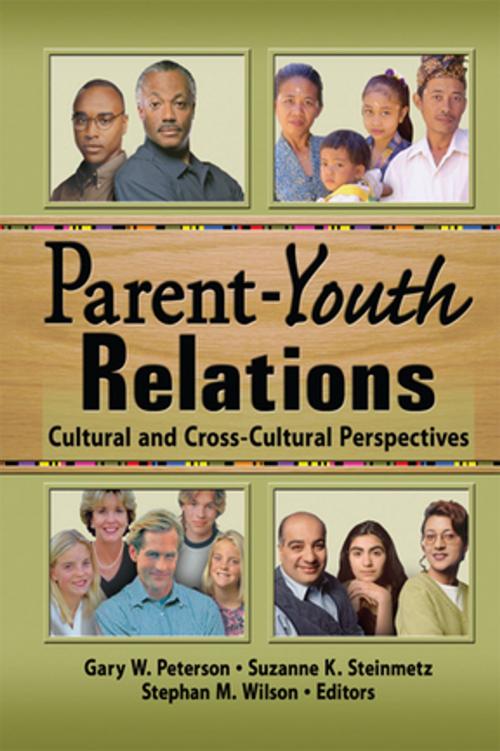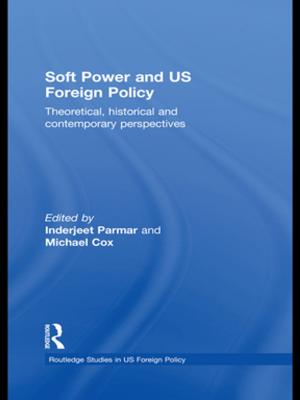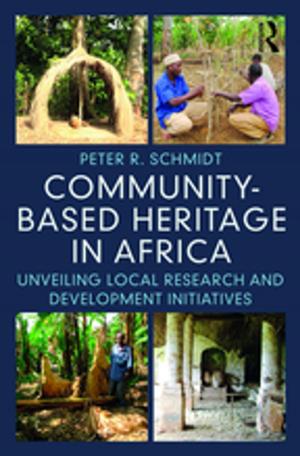Parent-Youth Relations
Cultural and Cross-Cultural Perspectives
Nonfiction, Family & Relationships, Adoption, Health & Well Being, Medical, Allied Health Services| Author: | Stephan Wilson, Gary W Peterson, Suzanne Steinmetz | ISBN: | 9781135796792 |
| Publisher: | Taylor and Francis | Publication: | December 6, 2012 |
| Imprint: | Routledge | Language: | English |
| Author: | Stephan Wilson, Gary W Peterson, Suzanne Steinmetz |
| ISBN: | 9781135796792 |
| Publisher: | Taylor and Francis |
| Publication: | December 6, 2012 |
| Imprint: | Routledge |
| Language: | English |
Explore the most fundamental human relationship-between parent and child
Western social science has long neglected to acknowledge that family relationships must always be examined from a culturally sensitive perspective. Parent-Youth Relations: Cultural and Cross-Cultural Perspectives fills this void by exploring in depth the most fundamental human relationship-between parent and child-in different societies around the world. International experts provide a comprehensive collection of original research and theory on how parental styles and the effects of culture are interconnected. Written from diverse perspectives, this unique resource reveals deep insight into these relationships by focusing on the individuals, the structure of the family, and societal and cultural influences.
Parental relations and cultural belief systems both play integral parts on how socialization and development occur in children. Parent-Youth Relations: Cultural and Cross-Cultural Perspectives presents several viewpoints, some comparing similarities and differences across societies or nations, others exploring relationships within a single culture. This probing global look at parent-youth relations provides sensitively nuanced information valuable for every professional or student in the social sciences. Detailed tables illustrate research data while thorough bibliographies offer opportunities for further study.
Parent-Youth Relations: Cultural and Cross-Cultural Perspectives explores:
-
parenting style and its effects on children in Chinese culture
-
parenting style in problem-solving situations in Hong Kong
-
cross-national perspectives on parental acceptance-rejection theory
-
multinational studies of interparental conflict, parenting, and adolescent functioning
-
the relationship between parenting behaviors and adolescent achievement in Chile and Ecuador
-
parent-adolescent relations and problem behaviors in Hungary, the Netherlands, Switzerland, and the United States
-
cross-national analysis of family and school socialization and adolescent academic achievement
-
parent-child contact after divorce-from the child’s perspective
-
familial impacts on adolescent aggression and depression in Colombia
-
predicting Korean adolescents’ sexual behavior from individual and family factors
-
parenting in Mexican society
-
relations with parents and friends during adolescence and early adulthood
-
parent-child relationships in childhood and adulthood and their effect on the parent’s marriage
-
the effects of financial hardship, interparental conflict, and maternal parenting in Germany
-
and more original research studies!
Parent-Youth Relations: Cultural and Cross-Cultural Perspectives presents the freshest research available along with extensive bibliographies, providing essential reading for educators, advanced undergraduates, graduate students, and professionals in family studies, sociology, psychology, and anthropology.
Explore the most fundamental human relationship-between parent and child
Western social science has long neglected to acknowledge that family relationships must always be examined from a culturally sensitive perspective. Parent-Youth Relations: Cultural and Cross-Cultural Perspectives fills this void by exploring in depth the most fundamental human relationship-between parent and child-in different societies around the world. International experts provide a comprehensive collection of original research and theory on how parental styles and the effects of culture are interconnected. Written from diverse perspectives, this unique resource reveals deep insight into these relationships by focusing on the individuals, the structure of the family, and societal and cultural influences.
Parental relations and cultural belief systems both play integral parts on how socialization and development occur in children. Parent-Youth Relations: Cultural and Cross-Cultural Perspectives presents several viewpoints, some comparing similarities and differences across societies or nations, others exploring relationships within a single culture. This probing global look at parent-youth relations provides sensitively nuanced information valuable for every professional or student in the social sciences. Detailed tables illustrate research data while thorough bibliographies offer opportunities for further study.
Parent-Youth Relations: Cultural and Cross-Cultural Perspectives explores:
-
parenting style and its effects on children in Chinese culture
-
parenting style in problem-solving situations in Hong Kong
-
cross-national perspectives on parental acceptance-rejection theory
-
multinational studies of interparental conflict, parenting, and adolescent functioning
-
the relationship between parenting behaviors and adolescent achievement in Chile and Ecuador
-
parent-adolescent relations and problem behaviors in Hungary, the Netherlands, Switzerland, and the United States
-
cross-national analysis of family and school socialization and adolescent academic achievement
-
parent-child contact after divorce-from the child’s perspective
-
familial impacts on adolescent aggression and depression in Colombia
-
predicting Korean adolescents’ sexual behavior from individual and family factors
-
parenting in Mexican society
-
relations with parents and friends during adolescence and early adulthood
-
parent-child relationships in childhood and adulthood and their effect on the parent’s marriage
-
the effects of financial hardship, interparental conflict, and maternal parenting in Germany
-
and more original research studies!
Parent-Youth Relations: Cultural and Cross-Cultural Perspectives presents the freshest research available along with extensive bibliographies, providing essential reading for educators, advanced undergraduates, graduate students, and professionals in family studies, sociology, psychology, and anthropology.















